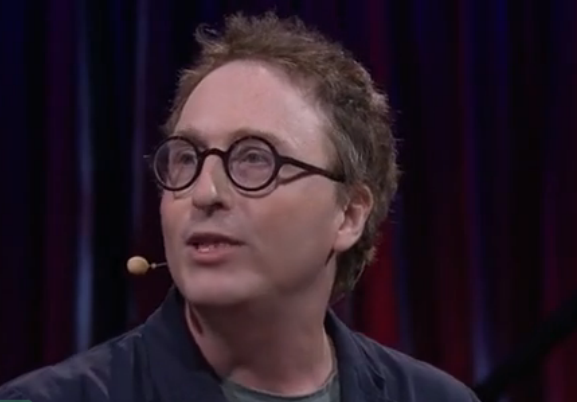You know, another woman on Twitter that night, a New Statesman writer Helen Lewis,
那晚在推特上的還有New Statesman雜志的作家海倫·劉易斯,
she reviewed my book on public shaming and wrote that she Tweeted that night,
她給我關于眾羞的那本書寫了書評,她寫到,當晚她也發個推文:
"I'm not sure that her joke was intended to be racist,"
“我不敢肯定她的笑話是藏有種族論用心的,”
and she said straightaway she got a fury of Tweets saying, "Well, you're just a privileged bitch, too."
馬上她就收到一大堆回帖,說: “呵,那你跟她一樣也是個養尊處優的母狗了。”
And so to her shame, she wrote, she shut up and watched as Justine's life got torn apart.
就這樣,她寫到,礙于羞愧,她就閉了嘴,靜觀賈絲婷的生活被瓦解了。
It started to get darker:
事情愈發糟糕:
Then came the calls for her to be fired.
接著就有人開始說該把她炒了。

Thousands of people around the world decided it was their duty to get her fired.
全球成千上萬的人將把賈絲婷炒魷魚視為己任。
Corporations got involved, hoping to sell their products on the back of Justine's annihilation:
商家也跑來湊熱鬧,希望能趁機兜售產品,都是順著賈絲婷之途來的:
A lot of companies were making good money that night.
不少公司在那天晚上賺了一大筆。
You know, Justine's name was normally Googled 40 times a month.
賈絲婷的名字平時被谷歌的次數是每月40次。
That month, between December the 20th and the end of December, her name was Googled 1,220,000 times.
那個月,即12月20日至該月底,她的名字被谷歌了122萬次。
And one Internet economist told me that that meant that
一位網絡經濟學家告訴說那意味著
Google made somewhere between 120,000 dollars and 468,000 dollars from Justine's annihilation,
谷歌從賈絲婷的毀滅中賺了約12萬至46萬8千美元。
whereas those of us doing the actual shaming -- we got nothing.
而我們這些噴子,連一個子兒都沒拿到。
We were like unpaid shaming interns for Google.
我們就好像是谷歌的免薪噴子實習生似的。











